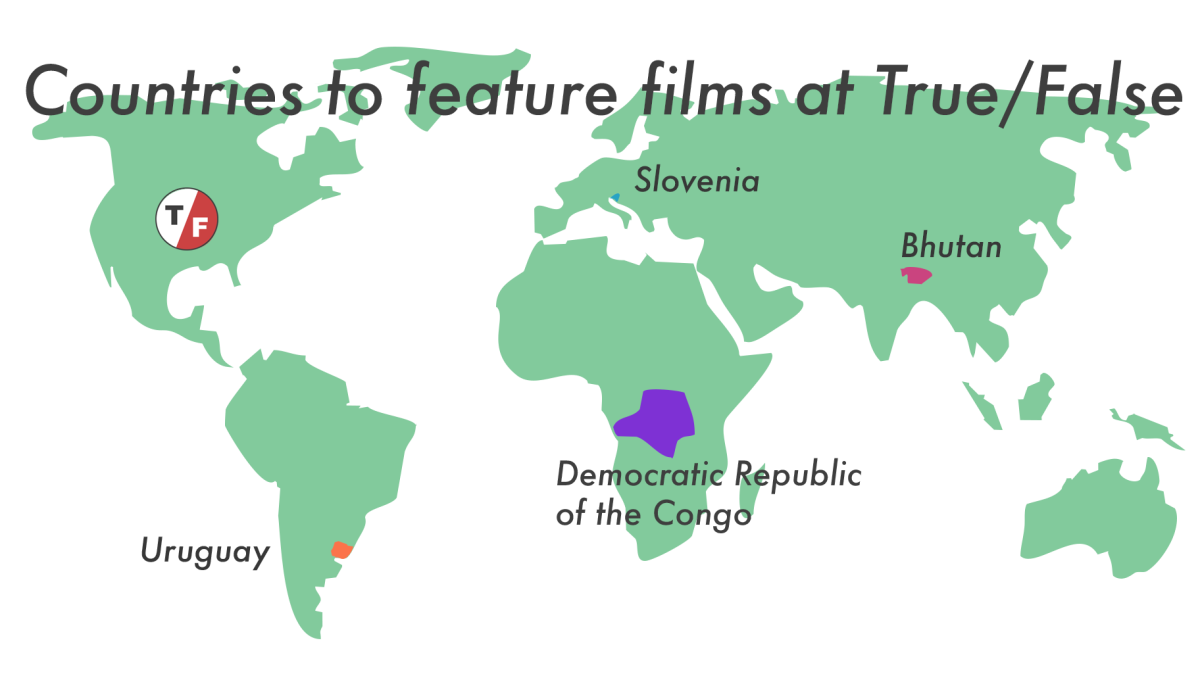
Tens of thousands of film fans file into Columbia, Missouri, theaters each year for True/False Film Fest. This year’s film lineup is the most diverse yet, with films from all over the world.
Beginning in 2004, True/False has curated films to be shown around downtown Columbia in a weekend festival of fun. This year, True/False will take place from March 1-4. From the Blue Note to Ragtag Cinema, theaters are filled with festival goers.
“I am still every year blown away by the way in which the city of Columbia and the people of Columbia really take on this festival and make it their own,” True/False co-conspirator David Wilson said.
In its 15th year, True/False has grown in size from a few thousand attendees to tens of thousands.
“The festival has definitely grown,” Wilson said. “The number of films shown has not grown as much, but when you think of the festival having 4,400 attendees versus 52,000 attendees now, it is nowhere near the same.”
In addition to this expansion of size, the diversity within True/False has also expanded. According to Wilson, this year’s film lineup is the most internationally diverse yet.
With more directors from different countries, more and more nations are represented in the festival. This year’s international films were produced in Uruguay, Slovenia, Democratic Republic of Congo, Bhutan and many more.
“We’ve always talked about bringing the world to Columbia and giving Columbians a broader sense of the world,” Wilson said.
In selecting the lineup, the True/False programming team consists of co-conspirators Wilson and Paul Sturtz, as well as programmers Abby Sun and Chris Boeckmann. Wilson said the team has always been aware of diversity but has increased it in the festival over time.
“We do not set quotas,” Wilson said. “That’s not how we think about programming, but it is definitely something we are proud of that we have been able to expand our vision of the films at True/False.”
Of the 39 featured films, 46 percent are directed or co-directed by women and 30 to 40 percent are directed by people of color, Wilson said.
According to Sun, diversity is an aspect that ensures there are different stories being told to widen perspectives. The programming team aims to find new stories and new voices to show more about the world.
“We have so many people that come out to True/False that it seems like a waste of an opportunity if we continued to look inward instead of outwards,” Sun said.
Instead of looking inward at local films, the programming team scouts films and receives submissions from around the globe, looking outward to find diverse voices.
“I think all of us this year were really interested in bringing in more about the world rather than just places everybody is maybe familiar with,” Sun said.
According to Wilson, this increase in diversity was an idea in the back of the programming team’s mind when selecting the lineup.
“For me, what this shows is that our programming team has taken on the challenge of really casting a wide net of looking beyond the kind of usual spots to find the best new films,” Wilson said.
From attending other film festivals in places such as Spain, Japan, Korea and around the U.S., to reaching out to filmmakers, True/False programming pulls films from a diverse spectrum.
The festival also takes blind submissions and selects films from that submission pool. This year, True/False received roughly 1,300 film submissions. The general public submissions opened in August and closed in November 2017.
Films are selected based on a wide range of criteria, including directorial vision.
“We can tell when there is a confident and creative artistic vision behind a film that informs all of the decisions the director makes in editing, music, graphics,” Wilson said. “And we are really looking for that fully realized vision.”
The process of selecting films consists of a screening committee, a group of volunteers who watch the films first through and give the films a rating. According to submissions coordinator Jordan Inman, if that rating meets a certain level, it will be watched through again.
“We make sure every film is watched fully,” Inman said. “And a film will get then more watches if someone indicates that there is something special about it.”
Ensuring that every film is watched in the selection process is an aspect Inman says sets True/False apart from other film festivals. The programmers and screening committee watch the films, write coverage and then discuss a film’s potential for True/False.
“We discuss not only of the film’s own merits but also how it fits in with our larger, whole lineup of films,” Wilson said.
Overall, the selection process is tedious and done by the entire team.
“It’s a pretty tricky process,” Wilson said. “These are pretty subjective opinions and programmers with strong opinions. We argue about films. We debate films.”
Together, True/False creates a lineup from diverse submissions and from filmmakers around the world.
“At the end of the day, we are all inventing an idea not because we think it helps us or our own world view, but it is the best thing for the festival,” Wilson said.
_Edited by Brooke Collier | [email protected]_